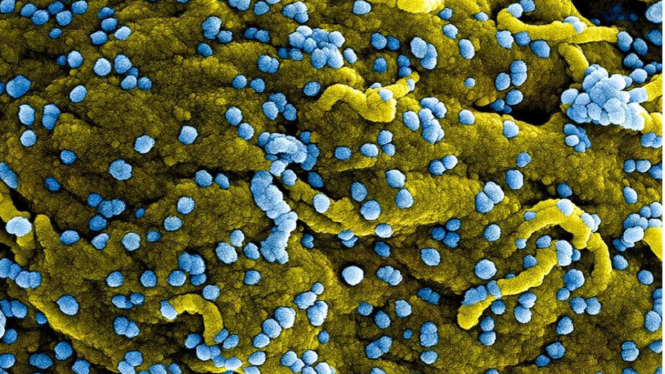Getting to Know Marburg Virus, Likely Becomes Pandemic
- WHO
VIVA – Marburg virus becomes a highlight because it has a death toll of up to 88 percent for the infected patient and there are no vaccines or cures for this disease yet.
The virus was recently detected in Africa and is expected to become a pandemic. It can cause outbreaks with high fatality rates, clinically similar to Ebola, the virus broke from a laboratory handling African green monkeys from Uganda. The virus then spread to various regions including Angola, Kenya, Uganda, and South Africa. Luckily, there have been no reported cases in Indonesia.
Meanwhile, the head of the epidemiological surveillance and immunization section at the Jakarta Health Office, dr. Ngabila Salama, MKM, explained that the fruit bat species Rousettus aegyptiacus is thought to be the natural reservoir host of the Marburg virus.
WHO karantina para korban virus Marburg
- WHO
Investigations into the first Marburg outbreak suggested that African green monkeys (Cercopithecus aethiops) imported from Uganda were the source of human transmission.
"Potential transmission from animals to humans can occur through contact with body fluids such as saliva, feces and urine, from animals infected with Marburg virus," dr. Salama said, quoted on Wednesday.
To prevent transmission, it is recommended to reduce contact with bats that are reservoirs of the Marburg virus. If one must visit bat habitat areas, gloves and other protective equipment such as masks should be worn. Consume meat thoroughly, including when in Marburg virus outbreak areas.
It is a surprising fact that in some cases, the Marburg virus can survive in the human body after recovering from Marburg virus disease, especially in the testicles and in the eyes.
Meanwhile, in women who are pregnant, the Marburg virus can survive in the placenta, amniotic fluid, and fetus, “While in women who are breastfeeding, the Marburg virus can survive in breast milk," the doctor said.
Previously, Health Minister Budi Gunadi Sadikin said the Marburg virus has only been reported in Africa and has not spread to other countries. Moreover, the possibility of its spread has not been detected further and is still being studied by the World Health Organization (WHO).
Although there is no cure or vaccine, the WHO has held a meeting to find a solution to the Marburg virus. Minister Sadikin also said that developments regarding the nature of the Marburg virus have been obtained from WHO so that it is enough to monitor and don’t have to panic.
Furthermore, the World Health Organization (WHO) has held an urgent meeting on the cases, calling in experts from around the world to discuss how to tackle the disease. Equatorial Guinea, which has never dealt with a Marburg virus outbreak before, has quarantined more than 200 people and restricted movement.
Many who contract the disease experience severe internal bleeding within a week, with blood from the nose, gums, vagina, and vomit and feces, and die shortly thereafter. Moreover, there is no treatment or vaccine for Marburg.
"The virus is transmitted to humans from fruit bats, and can spread among humans through direct contact with bodily fluids, surfaces, and materials," the WHO said.























